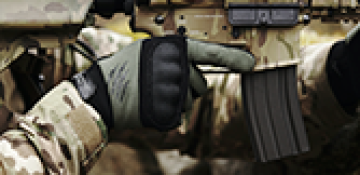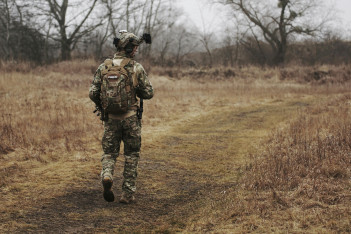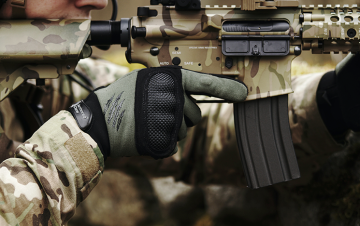What is combat participant status and why is it important for the Special Forces soldiers?
Combatant status is a state recognition that a serviceman has directly participated in the defence of Ukraine's independence, sovereignty and territorial integrity. For the Special Operations Forces (SOF), the combatant status is of particular importance, as these units perform the most dangerous tasks behind enemy lines, on the front line and in hard-to-reach areas of combat operations.
Getting UBD status for SSO fighters is not only an act of justice, but also provides access to a wide range of social benefits, rights and guarantees.
Legal grounds for obtaining UBD for SSO fighters
The procedure for obtaining the status of combatant for the Special Forces is determined by the Law of Ukraine ‘On the Status of War Veterans and Guarantees of Their Social Protection’. There are also relevant resolutions of the Cabinet of Ministers, instructions of the Ministry of Defence and orders of the General Staff. To obtain the status of a combatant, an SSO fighter must meet the following requirements:
- Service in the Special Operations Forces of the Armed Forces of Ukraine or other military formations that performed combat missions;
- Direct participation in combat operations or support of combat missions in the territory where the armed aggression of the Russian Federation is ongoing or has been ongoing;
- Confirmation of participation in operations by relevant documents (orders, extracts from combat logs, testimonies of commanders).
Also, persons who were wounded, contused or otherwise injured during hostilities, even if the duration of participation in combat was less than 30 days, are eligible for combatant status.
Who is eligible to receive combat participant status among the Special Forces personnel
The following categories of servicemen are eligible for the status of combat participant in the Special Forces:
- Active members of the SSO who have performed combat missions;
- Soldiers of the Special Forces who have already completed their service but took part in combat operations;
- Relatives of deceased members of the Special Forces - in the event of the death of a soldier, the UBD status may be granted posthumously.
This status is granted regardless of military rank, position or period of service, if there is sufficient evidence of participation in hostilities.
Step-by-step instructions: how to obtain the status of combatant for a member of the Special Forces
The procedure of getting UBD status consists of several important steps. Each of them requires proper preparation and attention to detail:
- Collection of evidentiary documents: orders to engage in combat missions; extracts from combat logs, combat routes; reports, memos, explanations from commanders; medical certificates on injuries, contusions, other damages; testimonies of comrades-in-arms and other participants in operations.
- Submission of documents: through the command of the military unit/operational command or directly to the interdepartmental commission at the Ministry of Defence of Ukraine. It is also possible to submit documents through a representative (lawyer or attorney by power of attorney).
- Waiting for consideration: the decision is made by the interdepartmental commission within the timeframe provided by law. In the event of a shortage or inconsistency of data, the commission has the right to send a request for clarification. In complex cases, an additional internal investigation may be conducted to establish the circumstances of participation in hostilities.
- Obtaining a decision. After a positive decision is made, the data on the serviceman is entered into the Unified State Register of Persons with the Status of Combatant. In case of refusal, a written justification must be provided.
- Obtaining a combatant identification card. After being entered into the register, a serviceman can obtain a combatant certificate through a military unit, territorial recruitment centre or social protection authority.
From the moment the certificate is issued, the soldier or his family members can enjoy the benefits, guarantees and compensations provided for by law.
What benefits does the status of a combatant's ID card provide for?
After obtaining a combatant status for the Special Forces, a person is entitled to:

Discounts on utilities - 75% for housing, gas, water, electricity.

Free travel in public transport, as well as benefits for long-distance transport.

Free treatment and medical care in public institutions.

Taxation benefits - reduced rates or exemption from certain taxes.

Priority provision of housing.

Preferential admission and free education at universities.
Typical problems in obtaining the status of combatant for the Special Forces
In practice, many servicemen and women face obstacles in obtaining the status of UBD for members of the Special Forces. The main difficulties:
- Lack of orders to participate in combat missions or memos;
- Refusal of the command to confirm the fact of combat involvement;
- Delayed consideration of documents by the commission;
- Inability or unwillingness to properly complete the application and documents;
- Families of fallen soldiers not knowing their rights to posthumous status.
A timely appeal to a lawyer will help to avoid these problems.
How a lawyer helps to obtain combatant status for the Special Forces
Legal support is the key to the successful registration of the status of combat participant for the Special Forces. An experienced lawyer:
- Assess the prospects of the case and explain the conditions for obtaining the status.
- Help you collect all the necessary documents.
- Make lawyer's requests to the command or archive.
- Represent the interests of the military in an interdepartmental commission.
- Prepare complaints in case of unjustified refusal.
- Significantly speed up the consideration of the case due to the accuracy and correctness of the documents.
Frequently asked questions about obtaining the status of a combatant for a Special Forces
Question
Is it possible to obtain the status of a combatant for a deceased member of the Special Forces?
Answer
Yes. The family has the right to apply for posthumous status.
Question
What should I do if I do not have an order for a combat mission?
Answer
You need to contact a lawyer to collect other evidence: explanations, extracts, witness statements.
Question
How long does it take to complete the procedure?
Answer
On average, 1-3 months, in complex cases - up to six months.
Question
Do I have to be injured to get a combat-related injuries certificate?
Answer
No, it is not. The fact of participation in a combat mission, confirmed by documents, is enough.
ConclusionRegistration of UBD status for SSO soldiers is not just about benefits. It is about recognising a feat, about protecting the interests of those who are the first to go to the most dangerous points of the frontline. That is why it is a matter of honour and justice to grant combatant status to the Special Forces.








































